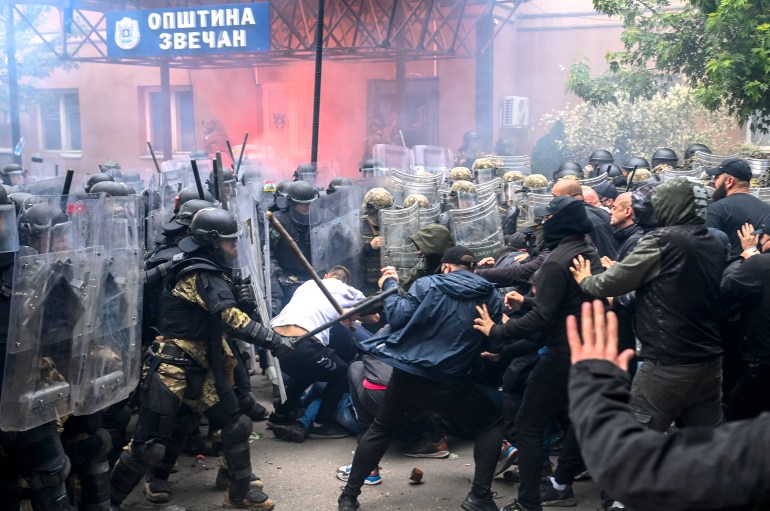European Union foreign policy chief Josep Borrell says it is time for the two countries to normalise ties ‘in earnest’.
Amid concerns that tensions could spiral out of control between the two countries, Serbian President Aleksandar Vucic and Kosovo Prime Minister Albin Kurti are in Brussels for talks on Thursday under the so-called Belgrade-Pristina dialogue process, supervised by European Union foreign policy chief Josep Borrell.
In a post on X, formerly known as Twitter, Borrell wrote: “It is time to begin applying the Agreement on the path to Normalisation in earnest”, adding a picture of the two leaders in the same room with him.
I am hosting President @predsednikrs Vučić and Prime Minister @albinkurti for a High-Level Meeting of the Dialogue in Brussels.
It is time to start implementing the Agreement on the path to Normalisation in earnest. Today, we will see if they are ready to take responsibility. pic.twitter.com/q8ws2Pqtye
— Josep Borrell Fontelles (@JosepBorrellF) September 14, 2023
The last round of the dialogue in June ended without producing any tangible results.
Vucic and Kurti refused to meet face-to-face, and Borrell, who held talks separately with the two men, conceded that they have “different interpretations of the causes and also the facts, consequences and solutions”.
In May, in a dispute over the validity of local elections in the Serbian part of northern Kosovo, Serbs clashed with security forces, including NATO-led KFOR peacekeepers working there, injuring 93 soldiers.

Last week, KFOR commander Major-General Angelo Michele Ristuccia cautioned that his forces “are living a time frame of constant crisis management”.
He said tensions between Belgrade and Pristina are so high that even “the most insignificant event can create a situation”.
In August, senior lawmakers from the United States – the other diplomatic power in the process – warned that negotiators are not putting enough pressure on Vucic. They said the West’s current approach shows a “lack of evenhandedness”.
Vucic, a former ultranationalist who claims to want to take Serbia into the EU, has maintained close ties with Russian President Vladimir Putin and has refused to impose sanctions on Russia over its war on Ukraine.
Historical tensions
Kosovo is a mainly ethnic Albanian-populated territory that was formerly a province of Serbia. It declared independence in 2008, but Belgrade has refused to recognise the move. The two have been at odds for decades, their 1998-99 war killing more than 10,000 people, mostly Kosovo Albanians.
Serbia has refused to recognise Kosovo’s statehood and still considers it part of Serbia, even though it does not have formal control there.
Kosovo’s independence has been recognised by about 100 countries, including the US.
However, Russia, China and five EU nations have sided with Serbia. The deadlock has kept tensions simmering and prevented complete stabilisation of the Balkan region after the bloody wars in the 1990s.
There are widespread fears in the West that Moscow could use Belgrade to reignite ethnic conflicts in the Balkans, which experienced a series of bloody conflicts in the 1990s during the break-up of Yugoslavia, to draw world attention away from the war.
But at the same time, Kurti – a longtime Kosovo independence activist who spent time in prisons in Serbia and Kosovo – has frustrated the Europeans and proven difficult for negotiators to work with since he became prime minister in 2021.
